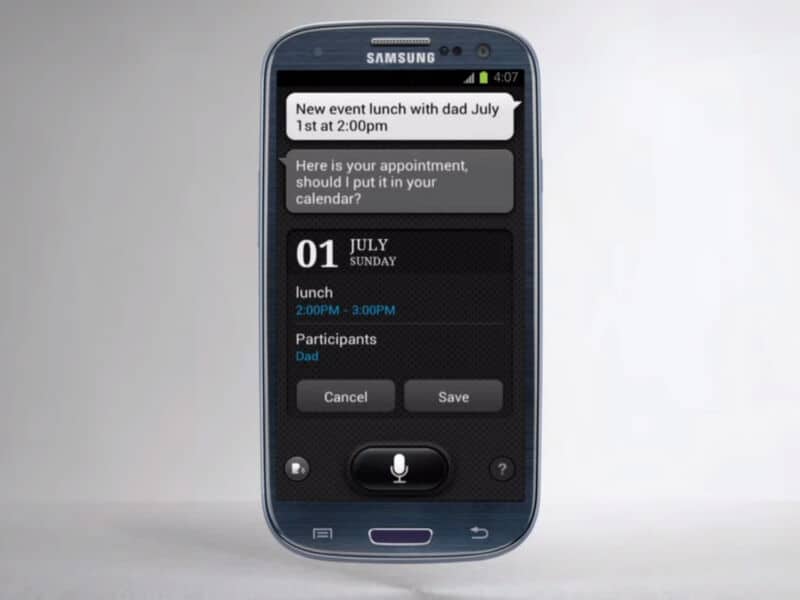You’ve got a month and a half to say your goodbyes to Samsung’s S-Voice voice assistant. SamMobile reports that Samsung will shut off the servers on June 1, 2020, at which point Samsung’s original voice assistant will stop attempting to respond to your voice queries.
S-Voice arose in the early days of voice assistants, when Android OEMs were scrambling to photocopy Apple’s Siri voice assistant, which launched in 2011. Samsung licensed the same underlying technology for S-Voice that Apple originally used for Siri—Nuance Communication’s voice recognition—and set about building its Siri sibling. S-Voice was Samsung’s chosen voice assistant for its smartphones until it rebooted its voice efforts with the launch of “Bixby” in 2017. Samsung’s Bixby project initially grew out of an acquisition of Viv Labs, a voice-assistant company founded by members of the original Siri team (see a pattern here?).
The Galaxy S8 and every device after it launched with Bixby and not S-Voice, so this shutdown should only effect older devices. SamMobile hunted down a list of applicable devices, saying “The affected models that have the S Voice icon on the app screen include the Galaxy A3, A5, A7, A8, A9, Galaxy Note FE, Galaxy Note 2, 3, 4, 5, Galaxy S3, 4, S5, S6, S6 edge in addition to the Galaxy Note Pro 12.2, Galaxy W, Galaxy Tab 4, Galaxy Tab 4 8.0/10.1, Galaxy Tab S8.4 and S10.5.”
All these devices are pretty old. The newest I could spot is the infamous Galaxy Note FE, a phone made from salvaged, unexploded Galaxy Note 7 parts that was released in mid-2017. Most of these devices will have to make due with some other voice-command system like, say, the Google Assistant, which the devices can freely install.
The future for Samsung is all Bixby, all the time, but it still has a rocky future ahead of it. Samsung has brought Bixby to smartphones, smartwatches, TVs, and refrigerators, but it still hasn’t launched one of the most important pieces of voice-assistant hardware: a smart speaker. Samsung announced the “Galaxy Home” Bixby speaker way back in 2018, but it still hasn’t come to market. The company said it would switch tracks and launch a cheaper Galaxy Home Mini sometime this year, but waiting until the back half of 2020 to enter the smart speaker market seems like a move that is destined to fail. Millions of Amazon Echo, Google Home, and Siri speakers are already out there. Amazon started the market six years ago, and it’s unclear why Bixby would gain any ground against its more capable, more widely-adopted competition.
I will always remember my first hands-on with S-Voice in 2012, when speaking the word “S-Voice” would prophetically be transcribed as “Ass Voice.”
Goodbye, Ass Voice.

